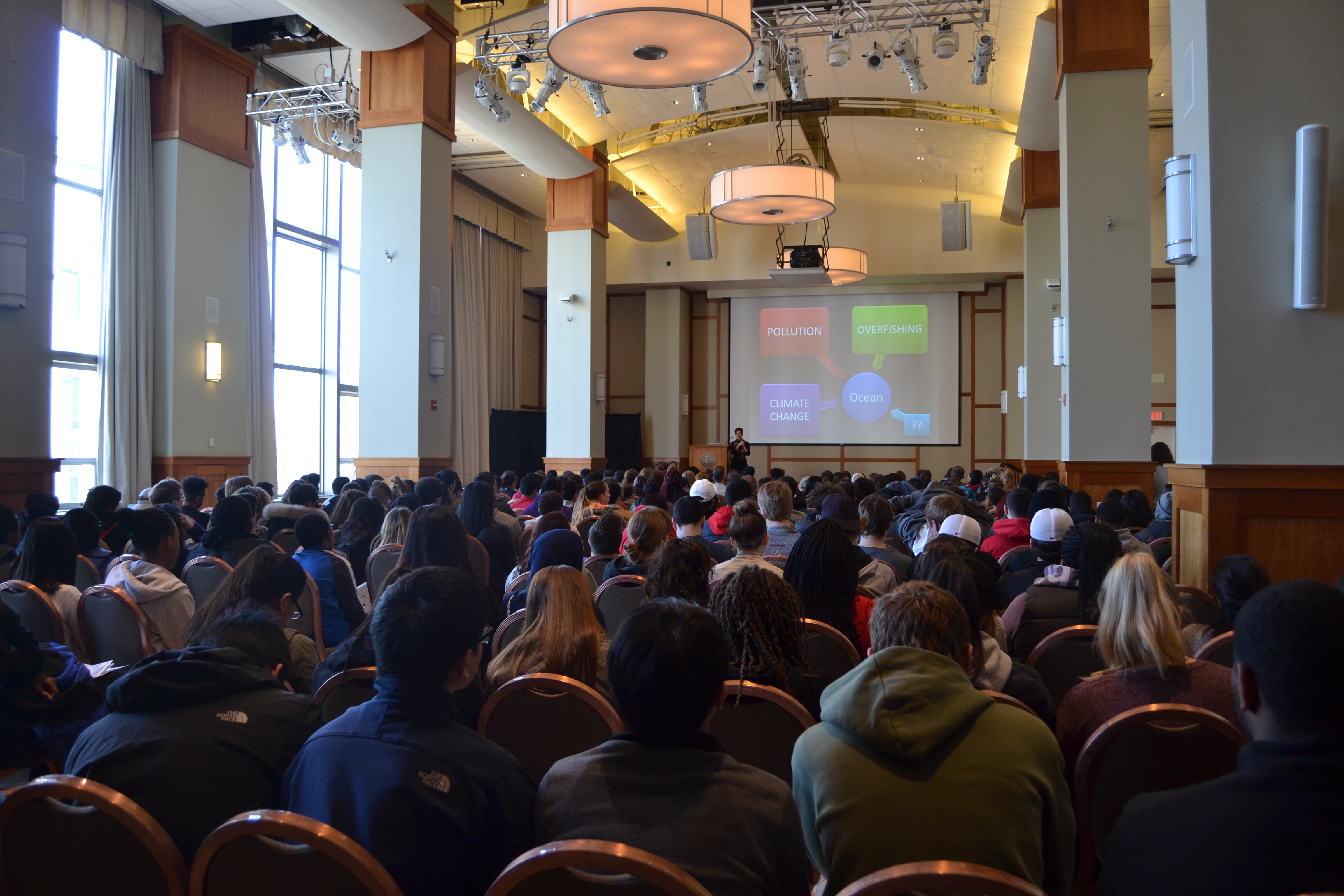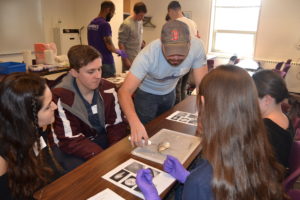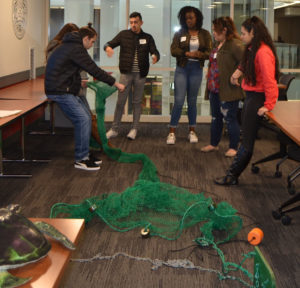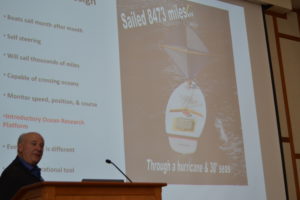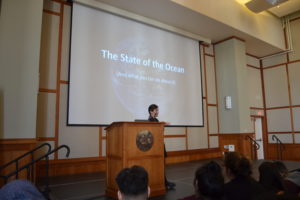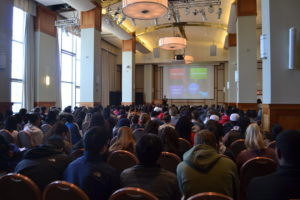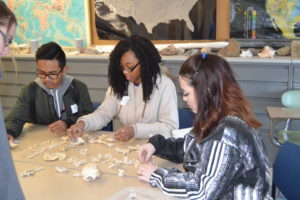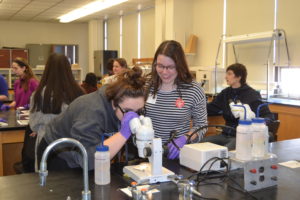Doctoring dolphins and mapping shipwrecks, tagging turtles and aging fish, reconstructing a skeleton and creating seaweed art. These were just few of the skills that students were able to learn and practice at the annual High School Marine Science Symposia, earlier this month.
Co-hosted by Northeastern University’s Marine Science Center and the Massachusetts Marine Educators, and sponsored by Salem State University, the two events brought together over 400 students and their teachers, from about 25 schools around Eastern Massachusetts. Scientists, educators, and student leaders from over 30 different organizations delivered hands-on workshops, lightning talks, and keynote lectures, allowing students meet and interact with professionals, while exploring a variety of different fields and career possibilities in marine science.
At the Boston event on March 9th at Northeastern University, presenters such as MIT SeaGrant demonstrated and allowed students to practice techniques that allow scientists study ocean acidification. In another workshop, the New England Aquarium ClimaTeens offered their peers advice for how to better understand, and talk to others, about climate change.
After a series of lightning talks and two workshops, students were treated to an inspiring keynote lecture by WGBH Science Correspondent Heather Goldstone, who impressed upon the students the urgency to act on climate change mitigation, and their role as citizens and environmental stewards.
At the North Shore event at Salem State University on March 16th, inspiring lightning talks by Friends of Lynn and Nahant Beach marine enthusiast T.J. Cullinane, and student activist Tori Kako kicked the morning with passion.
During the workshops, presenters including the One Fish Foundation, and Salem State’s Cat Cove Marine Lab educated students about sustainable seafood and aquaculture. Another session, the Ocean Genome Legacy demonstrated DNA barcoding and then let students try their hand at this technique to identify local fish species.
Delivering the keynote lecture was Northeastern University Professor Brian Helmuth, who shared with students the novel technologies, such as the robomussel, that he is using to study and better understand changing environmental conditions.
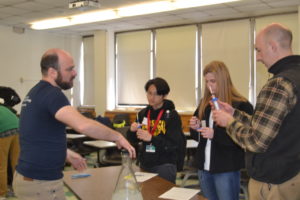 The event would not have been possible if not for the dedication of the presenters, event volunteers, and extremely generous event sponsors. With the goal to make the event accessible to all students, a scholarship fund was created, which raised funds to allow over 150 students from economically disadvantaged school districts to attend the event free of charge.
The event would not have been possible if not for the dedication of the presenters, event volunteers, and extremely generous event sponsors. With the goal to make the event accessible to all students, a scholarship fund was created, which raised funds to allow over 150 students from economically disadvantaged school districts to attend the event free of charge.
Scholarships were supported by the Massachusetts Bays National Estuary Program, Massachusetts Division of Marine Fisheries, Boston SCUBA, East Coast Divers, Friends of Lynn and Nahant Beach, and the Massachusetts Marine Educators. A number of generous individuals also chipped in, including Sandra Ryack-Bell, Peg Collins, George Duane, Joe LaPointe, Linda McIntosh, Anne Smrcina and Kathy Zagzebski.
Refreshments at the Boston event were donated by Jules Catering and Panera Bread. Teacher and presenters were also treated to raffle prizes donated by the Museum Institute for Teaching Science, New England Aquarium, South Shore Natural Science Center, and New Bedford Whaling Museum.
Thanks to all who have participated in and/or supported these events, demonstrating strong community commitment towards STEM education and fostering the future ocean stewards and STEM professionals of tomorrow.
